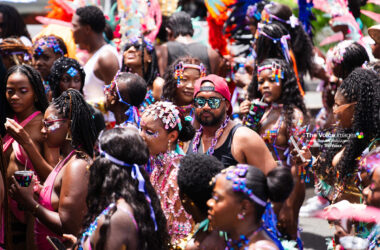KWÉYÒL is a national gem and by extension, a Caribbean treasure. However, a treasure that is hidden and unable to be retrieved by its owner is a lost treasure. Wealth is to be utilized or held in trust for the future generation. To hide it, or bury it, according to the well-known parable is an unproductive exercise, more so, to forget where it is hidden. For this treasure to multiply, it must be shared, and propagated. Indeed, in the same way biodiversity is essential to the survival of the planet, so too is linguistic diversity essential to human evolution. Thus, for a language to survive, it must continually reproduce itself and this can be done, first of all, via the spoken exchange.
When a language is competing in an environment where there is a dominant language, somewhat like a dominant invasive species, it can easily become endangered or extinct. Furthermore, several of these endangered languages are struggling for survival around the globe as most of them are either not written, not widely spoken or are overshadowed by the written languages. Moreover, these endangered languages often are the ones which carry the history, the life blood, the treasure of the nation. It is in the native tongue that the master narrative of any culture is deposited. When this language dies the culture also dies.
How can we keep a threatened language like our Kwéyòl from becoming extinct or release it from the chains of being a second class, ‘bastard language’ in its own home? The answer is simply to allow it to reproduce itself more rapidly, in the same way dominant plants and languages would behave. More importantly, it must be taught in school, which means to also teach the writing system. By speaking and writing the Kwéyòl language, it will become more ubiquitous in the environment. As our ears hear and our eyes see it everywhere, the language will be internalized and remain or become part of our linguistic make-up. It must litter our ‘Langscape’.
In this hostile language environment, where spoken and written English fight to remain supreme, Kwéyòl must be written in order to remain alive. A National language policy and a working, active Language Commission must also be established at an official level. All who pass through the portals of our education system must learn to read and write the Kwéyòl Language, which is, to our minds, the chief identifying mark of our Saint Lucian-ness. So, let us write Kwéyòl, in order to keep our ancestral memory alive. Let’s not bury this wealth any longer.
The Kwéyòl Language Committee of the Folk Research Centre has embarked upon a project aimed at promoting the Kwéyòl language and the use of it among Saint Lucians and others while at the same time providing instruction in the Creole way of life. The medium of the local newspaper will facilitate this objective.
From the month of October, we invite you to join us through the VOICE newspaper on an exciting journey which will lead us to proficiency in reading and writing the Kwéyòl language and ultimately propagate and fortify one of the main elements of our culture. At the same time, we will be aligned with other countries all over the world which have not only recognized the need to sustain their native language but are engaged in a range of activities to promote it.
Let us be mindful that, in the CARICOM region, with over eight million speakers, French Creole is easily the most widely spoken language. This means that it has the added value of unifying the region and enabling us to forge ties with other Kwéyòl speaking nations in the world. We are not alone in this strife and battle to save our native language from being muffled.
With the support of global organizations like UNESCO and local initiatives, KWÉYÒL-LA KAY VIV ÈK KLÉWÉ POU TOUT TAN!














